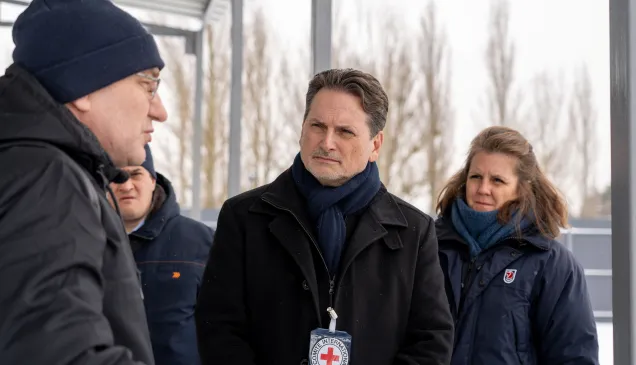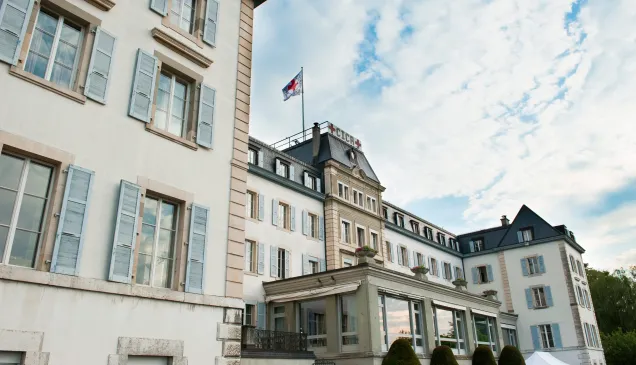Eastern Ukraine: Life goes on despite destruction
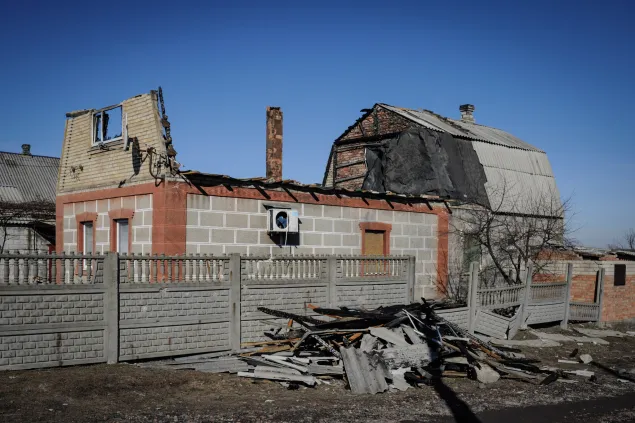
The village of Oleksandrivka, south-west of Donetsk, has suffered severely from repeated shelling. Attacks on residential areas are prohibited by international humanitarian law, but homes have been destroyed in the centre of the village. Many of the population have fled. Those who have stayed behind are struggling to survive severe winter conditions in damaged houses, with no facilities or public services.
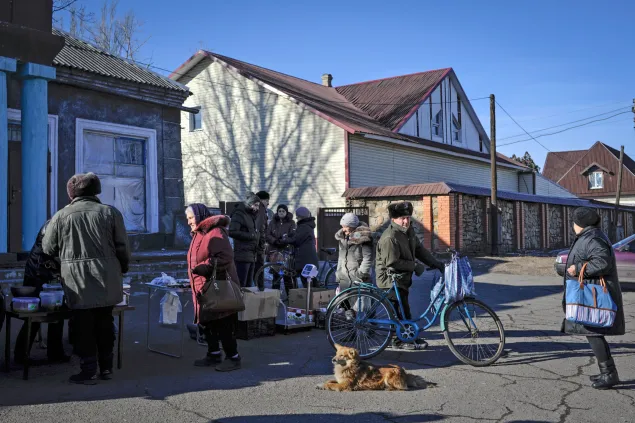
Oleksandrivka, near Donetsk, Ukraine, 24 February 2015. Life goes on, despite months of heavy fighting.
The village has the misfortune to lie between Ukrainian government positions and those of opposition fighters. Before the conflict, over 4,000 people lived here. Since last summer, about 40% of the population have fled, mainly to Donetsk. Some come back from time to time, to check on their houses and visit relatives.
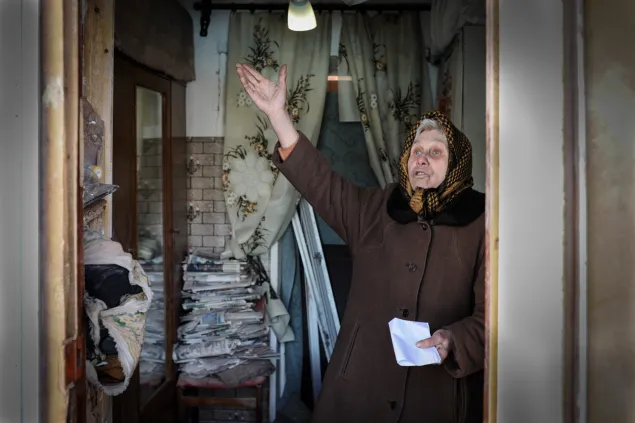
Oleksandrivka, near Donetsk, Ukraine, 24 February 2015. Valentina points out the damage to her home.
Valentina (74) has been a widow since summer 2014. In late January of this year, a missile hit her front porch, blowing out all the windows as she sat in her living room. Part of her house was destroyed. She had no electricity for several weeks, and when the supply was restored, she only had power on one day a week. Like the other residents of Oleksandrivka, she has to use coal for both heating and cooking. Valentina is struggling to survive, alone. Tearfully, she tells us: "It took us 10 years to build this house. I just don't understand why all this is happening!"
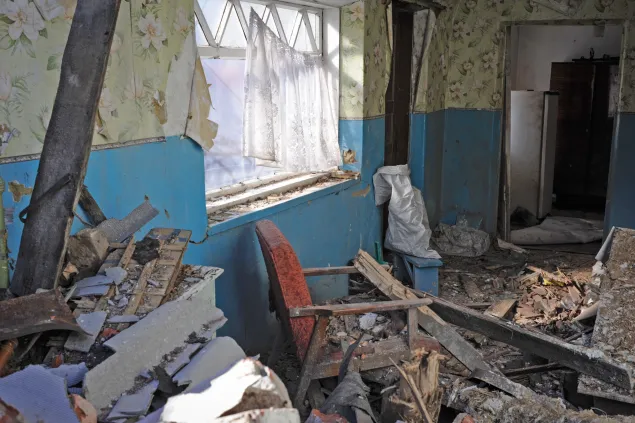
Oleksandrivka, near Donetsk, Ukraine, 24 February 2015. Debris litters the floor of a ruined house.
Most buildings in Oleksandrivka have been severely damaged or completely destroyed, and nearly half the inhabitants have fled. The ICRC has supplied tarpaulins and plastic sheeting so people can make temporary repairs.
Civilians often pay a terrible price in armed conflict. International humanitarian law prohibits the use of heavy explosive weapons in densely populated areas, because of their indiscriminate effects. IHL also requires warring parties to refrain from harming civilians, to protect them and to avoid damage to civilian property and objects.
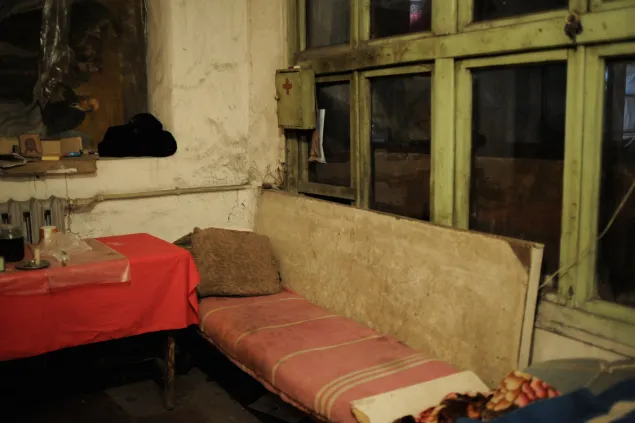
Oleksandrivka, near Donetsk, Ukraine, 24 February 2015. A school basement provides shelter from the fighting.
Fifty people are using the basement of the village school as a shelter from the fighting. The basement has no sanitary facilities, but some people are living there, afraid that shelling might start again at any time.
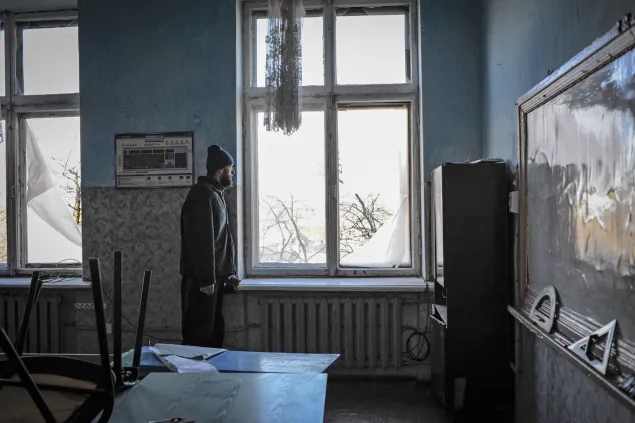
Oleksandrivka, near Donetsk, Ukraine, 24 February 2015. No school today. And no school tomorrow.
Constant shelling has damaged the village school, which has been closed for months.
Using weapons in populated areas not only endangers civilian lives but also has a host of indirect long-term consequences, such as preventing children from attending school. Facilities for children are entitled to particular protection during hostilities, but despite the efforts of dedicated teachers, thousands of Ukrainian children are unable to go to school.
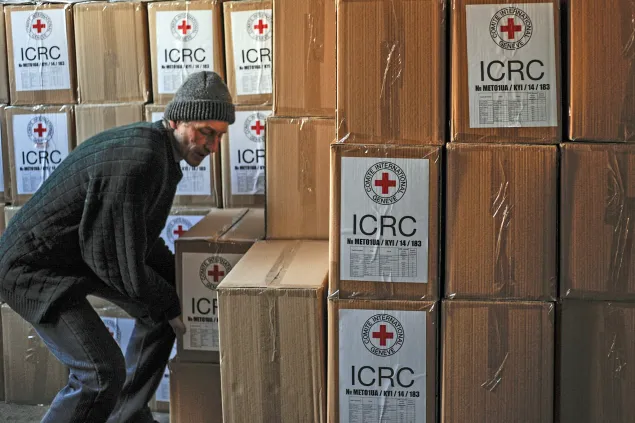
Oleksandrivka, near Donetsk, Ukraine, 24 February 2015. Food distribution.
The ceasefire agreement signed in Minsk on 15 February has enabled the ICRC and other humanitarian organizations to reach areas that had long been inaccessible. Despite dangerous conditions, ICRC staff are working in Oleksandrivka and elsewhere on both sides of the front line, delivering badly needed aid. The organization is supplying special aid for pensioners, disabled people and families with children. Nearly 1,700 people in Oleksandrivka have received food parcels and over 300 families with children have received hygiene kits.
The recent ceasefire brought hope of a return to normal life after weeks of heavy fighting. Humanitarian workers can now once again reach people needing their help, although some areas remain cut off. The scale of destruction is immense, with the conflict having a devastating impact on health care, education and public infrastructure.
People desperately need food, water, medicine, electricity and shelter. ICRC staff are hard at work on both sides of the front line. In late February, French photographer Capucine Granier-Deferre went with one of our teams to a village close to the front.

